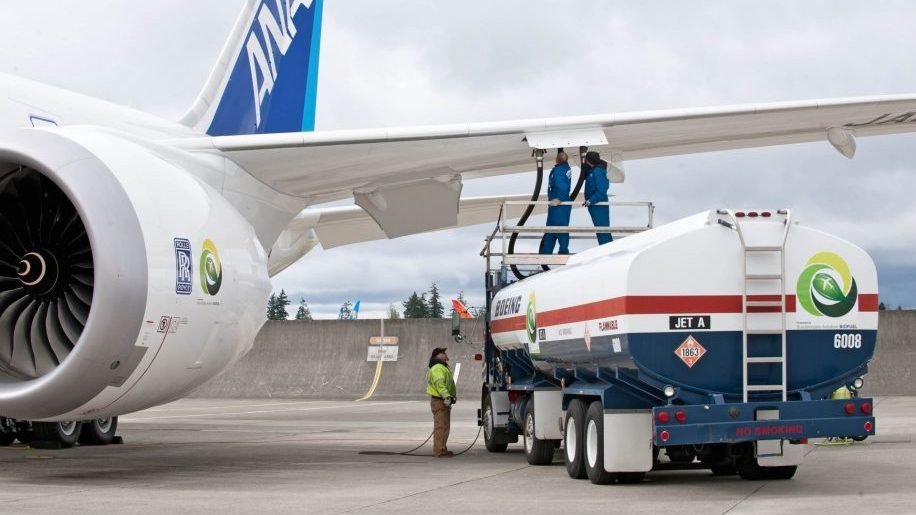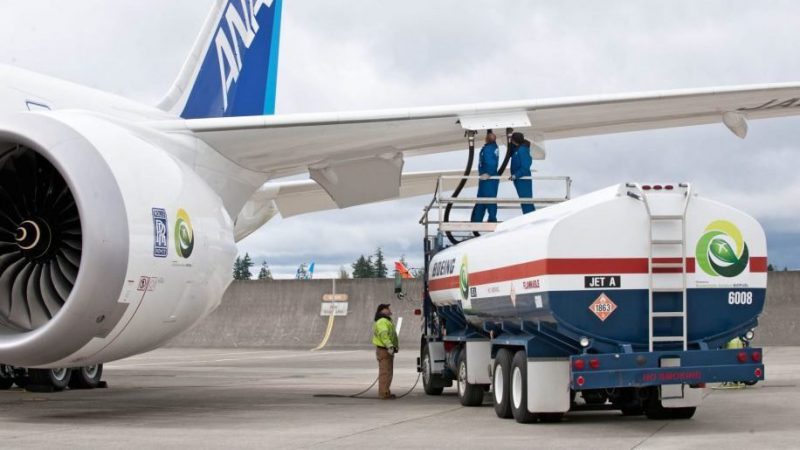Boeing Commits to Deliver All Sustainably-Fueled Aircraft by 2030
Current rules limit SAFs to a 50/50 blend, but the aircraft maker says increased use would be “the most immediate” way to meet carbon goals
January 26, 2021

Boeing is targeting a goal of making all new commercial aircraft deliveries “capable and certified to fly on 100 percent sustainable aviation fuels by 2030.” The aircraft manufacturer said its “ambitious target” would “advance the long-term sustainability of commercial aviation.”
Currently, rules limit aircraft to a maximum of 50 percent sustainable aviation fuels (SAFs) blended with conventional jet fuel. In its announcement, Boeing warned that for the aviation sector to meet its goal of reducing carbon emissions by 50 percent from 2005 levels by 2050, aircraft would need to be capable of flying on 100 percent SAFs well before that date.
Boeing chief sustainability officer Chris Raymond said that SAFs were “proven, used every day, and have the most immediate and greatest potential to reduce carbon emissions in the near and long term when we work together as an industry.”
Boeing, which has been conducting test flights using SAFs, said its commitment would “determine what changes are required for its current and future commercial airplanes to fly on 100 percent sustainable fuels, and to work with regulatory authorities and across the industry to raise the blending limit for expanded use.”
A number of air carriers worldwide have already made commitments to reducing carbon emissions with the use of sustainable aviation fuels. For example, United Airlines has been powering all flights departing its Los Angeles hub with SAFs since 2016, and has announced investments in both sustainable fuels and carbon capture to achieve its carbon neutrality goals.
Meanwhile, Boeing’s competitor Airbus is researching hydrogen powered aircraft as a way of bringing about clean aviation fuel, having recently unveiled a new project codenamed ZEROe with which it hopes to bring zero-emission commercial aircraft into service by 2035.
According to Boeing Commercial Airplanes president and CEO Stan Deal, sustainable aviation fuels are the safest and most measurable solution to reduce aviation carbon emissions in the coming decades. “We’re committed to working with regulators, engine companies and other key stakeholders to ensure our airplanes and eventually our industry can fly entirely on sustainable jet fuels.”
See more on Boeing’s sustainability commitments here.




